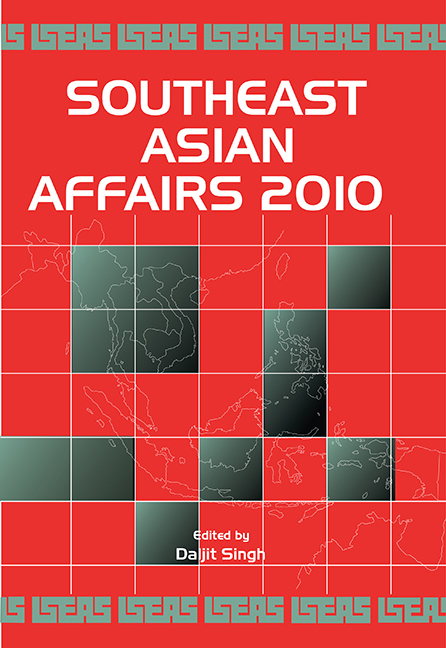Book contents
Indonesia in 2009: Democratic Triumphs and Trials
from INDONESIA
Published online by Cambridge University Press: 21 October 2015
Summary
In 2009, national affairs in Indonesia were dominated by elections that were held in two rounds: legislative elections on 9 April and presidential elections on 8 July. A second round of presidential elections was scheduled for September, but proved unnecessary because the incumbent, Susilo Bambang Yudhoyono, won a landslide victory in the first round, with just over sixty per cent of the vote. With his political party also coming first in the parliamentary elections, 2009 was President Yudhoyono's year: he becomes the first post-Suharto president to serve more than one term, and the first Indonesian president to be democratically re-elected. Moreover, in 2009 his government could also claim other significant achievements, including continuing positive economic performance which largely spared Indonesia from the worst effects of the global financial crisis, and, after two bombings in Jakarta in July, the killing by police of key Islamist terrorists. His government also demonstrated an increasingly confident posture and high profile on the world stage. With the third successful elections since Indonesia's transition from authoritarian rule began in 1998, the year also marked a milestone in democratic consolidation.
Yet amid the triumph, both for President Yudhoyono and for Indonesian democracy, there were also stumbles, some of which point toward future dangers. The administration of the elections was bungled — so badly that had the margin of Yudhoyono's victory been narrower, the very legitimacy of his victory may have been in doubt. In the final months of 2009, the President's efforts to form a new government and set out an agenda for a second term were overshadowed by a series of interconnected corruption scandals, exposing serious misdeeds and a culture of mendacity in the bureaucracy that not only cast a pall over the President's much-vaunted achievements on the anti-corruption front but also pointed to underlying systemic problems in Indonesian democracy.
The Legislative Elections: Yudhoyono's Dominance and Party Realignments
The year 2009 dawned with all political forces concentrating on preparations for the April legislative polls. Approximately 171 million voters were to vote in over half a million polling booths around the country, for 560 seats in Indonesia's national parliament, the DPR (Dewan Perwakilan Rakyat, People's Representative Council), 132 seats in the less powerful DPD (Dewan Perwakilan Daerah, Regional Representative Council), and for several thousand seats in the thirty-three provincial legislatures and about 500 district legislatures around the country.
- Type
- Chapter
- Information
- Southeast Asian Affairs 2010 , pp. 103 - 125Publisher: ISEAS–Yusof Ishak InstitutePrint publication year: 2010



